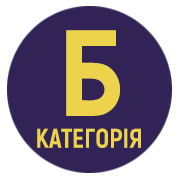WISDOM AND ALGORITHMS: A LOOK AT INTELLIGENCE IN THE MODERN WORLD
DOI:
https://doi.org/10.32782/ped-uzhnu/2024-7-4Keywords:
human intelligence, artificial intelligence, creativity, moral reasoning, adaptability, emotional intelligence, self-awareness, synergyAbstract
This paper explores the comparison between human and artificial intelligence, focusing on their key characteristics, differences, and interactions in the modern world. The author analyzes the unique traits of human intelligence, such as creativity, moral reasoning, adaptability, and self-awareness, highlighting its superiority in areas involving emotional intelligence and intuitive decision-making. Artificial intelligence, on the other hand, demonstrates significant achievements in processing large amounts of data, self-learning, and task automation, but is limited when it comes to moral evaluation, creative thinking, and social context. The paper argues that while AI is a powerful tool in many fields, it cannot fully replace human intelligence in tasks that require creativity, emotional sensitivity, and ethical considerations. However, integrating both forms of intelligence allows for synergies that can optimize solutions and contribute to progress in science, technology, and social development.
References
Бурса С. І. Наукові поняття «рефлексія», «самосвідомість» і «саморозвиток». Особливості їх змісту і взаємозвʼязку. Освіта і наука – 2024: звітно-наукова конф. студентів та аспірантів Факультету психології Українського державного університету імені Михайла Драгоманова, 9–11 квітня 2024 р.: тези доп. Київ, 2024. C. 34. URL: https://enpuir.npu.edu.ua/bitstream/handle/123456789/45185/Osvita%20i%20nauka_Materialy%20konfer_2024.pdf?sequence=1#page=34 (дата звернення: 27.01.2025).
Кай-Фу Лі, Чень Цюфань. ШІ 2041: десять передбачень майбутнього. Київ: Bookchef, 2022. 464 c.
Лубко Д. В., Шаров С. В. Методи та системи штучного інтелекту. Мелітополь: ФОП Однорог Т. В., 2019. 264 с. URL: http://elar.tsatu.edu.ua/bitstream/123456789/15462/1/5_lubko_metody_2019.pdf (дата звернення: 27.01.2025).
Теґмарк М. Життя 3.0. Доба штучного інтелекту. Київ: Наш формат, 2019. 432 с.
Тимофієва Н. Класифікація природнього та штучного інтелекту. URL: http://www.fmmit.lviv.ua/index.php/fmmit/article/view/319/287 (дата звернення: 27.01.2025).
Aldoseri A., Al-Khalifa K. N., Hamouda A. M. Re-Thinking Data Strategy and Integration for Artificial Intelligence: Concepts, Opportunities, and Challenges. Applied Sciences. 2023, Vol. 13(12). 7082 URL: https://www.mdpi.com/2076-3417/13/12/7082 (дата звернення: 27.01.2025).
Bonnefon J.-F., Rahwan I., Shariff A. The Moral Psychology of Artificial Intelligence. Annual Review of Psychology. 2024. Vo. 75. URL: https://www.annualreviews.org/content/journals/10.1146/annurev-psych-030123-113559 (дата звернення: 27.01.2025).
Elon Musk’s Famous Quotes And Videos On The Dangers Of AI. URL: https://roboticsbiz.com/elon-musksfamous-quotes-and-videos-on-the-dangers-of-ai/ (дата звернення: 27.01.2025).
Lance E. Unpacking The Best Top Ten Quotes About Artificial Intelligence Leveraging Modern-Day AI Ethics Thinking. URL: https://www.forbes.com/sites/lanceeliot/2022/09/03/unpacking-the-best-top-ten-quotes-aboutartificial-intelligence-leveraging-modern-day-ai-ethics-thinking/ (дата звернення: 27.01.2025).
Pereira F. C. Creativity and Artificial Intelligence. A Conceptual Blending Approach. URL: https://www.google.com.ua/books/edition/Creativity_and_Artificial_Intelligence/rOiqb6SUV4oC?hl=uk&gbpv=0 (дата звернення: 27.01.2025).
Rashid A. B., Kausik A. K. AI revolutionizing industries worldwide: A comprehensive overview of its diverse applications. Hybrid Advances. 2024. Vol. 7, 100277. URL: https://www.sciencedirect.com/science/article/pii/S2773207X24001386 (дата звернення: 27.01.2025).
Robert J. Sternberg Human intelligence. URL: https://www.britannica.com/science/human-intelligencepsychology (дата звернення: 27.01.2025).







